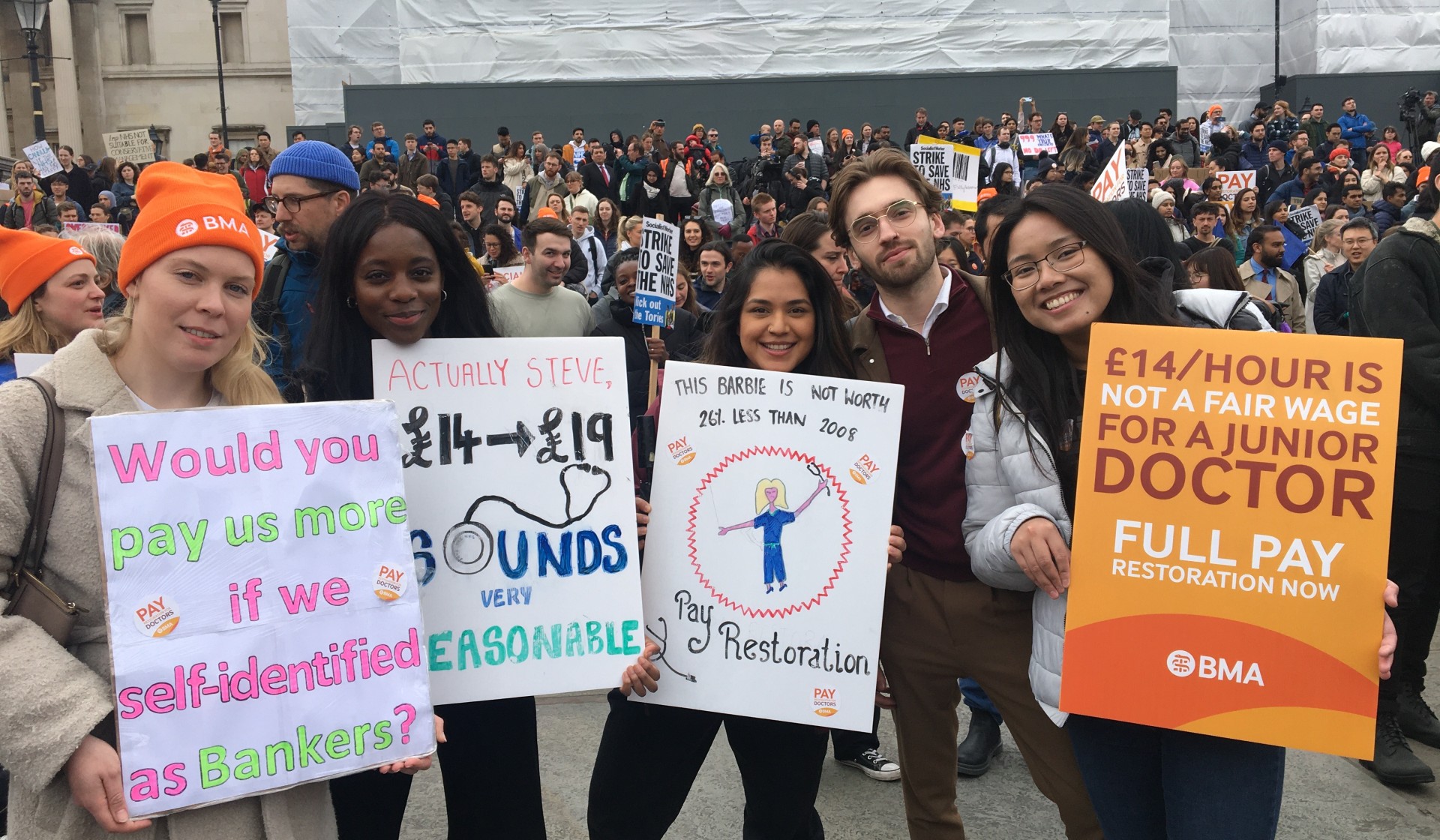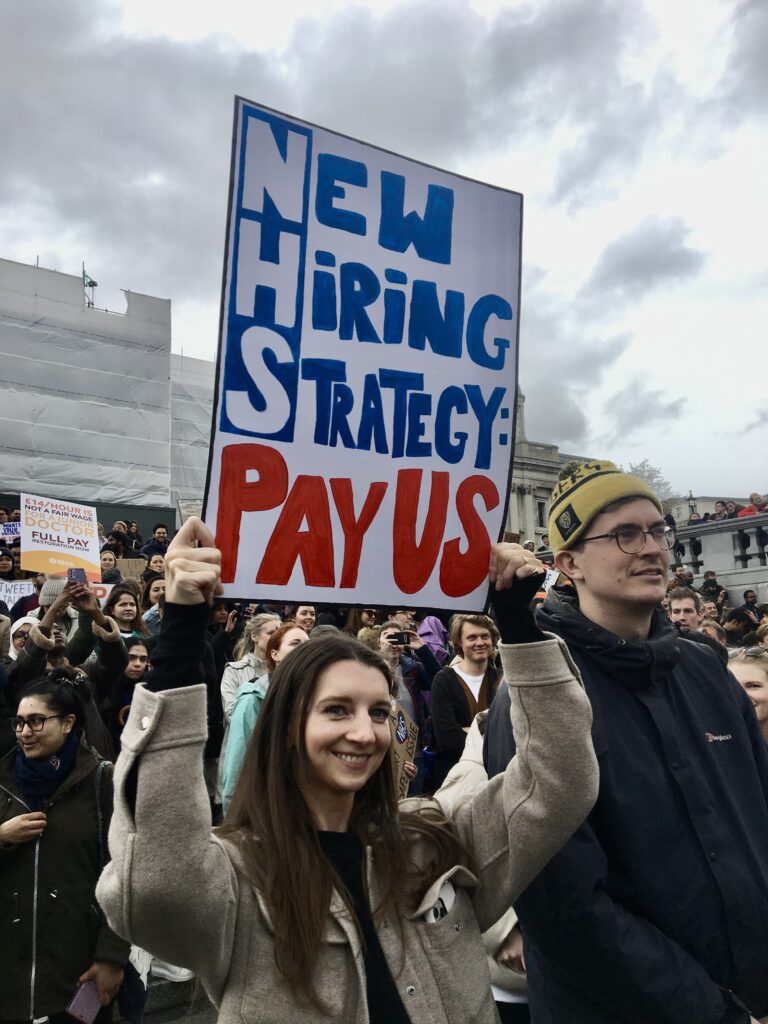 Junior doctors in London. Photo: Counterfire
Junior doctors in London. Photo: Counterfire
The junior doctors’ strike is about the future of the NHS, and everyone must get behind them, argues Kate O’Neil
After a morning of hospital picketing, thousands of NHS junior doctors rallied in Trafalgar Square on Tuesday to inaugurate four days of strike action this week in their ongoing pay dispute with the government. Before marching to 10 Downing Street, members of the British Medical association sang out their frustration with the health secretary Steve Barclay’s failure to meet with them in good faith. A doctor on keyboard led the crowd in ‘Call me Barclay’, an adapted version of Carly Rae Jepsen’s pop tune ‘Call me Maybe’, and ‘Hey Steve Barclay, I wanna know who you’re hiding from!’ to the melody of Bruce Channel’s sixties hit ‘Hey! Baby’, among others.
The musical atmosphere reflected the doctors’ confidence and determination. Their strike mandate comes from an unprecedented 98% of members voting yes to the action, with 77% turnout. And unlike other health unions which called off strikes before entering talks with Barclay, and are now pressuring their members to accept pay rises well below inflation, the newly elected left-wing BMA leadership is taking a more militant stance. It has refused to call off strikes and is not backing down from the demand of ‘full pay restoration’—a 35% pay rise which would compensate for both inflation and the 26% real terms pay cut junior doctors have experienced over the past 15 years.
The current round of strikes also represents an escalation of action. Not only are the strike days consecutive, but all doctors have been called out, including those who work in emergency care. This puts the BMA at the forefront of the present trade union upsurge, and it is a significant step forward from the union’s last wave of strikes in 2016, which ended with the government unilaterally imposing an unpopular contract on junior doctors.
The importance of this political moment for the future of the profession, the NHS and the trade union movement was not lost on anyone.
‘This is a new BMA. This is not 2016,’ announced Dr Vivek Trivedi, co-chair of the BMA Junior Doctors’ Committee, ‘This opportunity will not come again….A union that can win pay restoration is a union that can win anything.’

Picket signs, chants and speakers throughout the rally pushed back against the government’s claim that a 35% pay increase is unreasonable. NHS staff retention and cost of living were top reasons.
‘People die needlessly due to waiting times. The National Health Service has become a national disgrace. We need doctors to stay,’ said Arjun Nagra, BMA National Regional Junior Doctor Committee Chair. ‘They call us greedy, but that couldn’t be further from the truth’ he added, pointing out that starting junior doctors are only asking for a pay rise from £14 to £19 an hour.
The deputy general secretary of the NEU, Niamh Sweeney, offering solidarity from teachers, who are in pay dispute, placed the blame for the strikes firmly on the government. ‘We know like you that it’s not us that are causing the disruption,’ she said, calling on the government to invest in public education and healthcare.
The BMA’s willingness to stand firm on demands, escalate action to win them and build together with other public sector unions is what is needed to force the Tories’ hand on pay. Everyone behind the BMA!
Fund the fightback
We urgently need stronger socialist organisation to push for the widest possible resistance and put the case for change. Please donate generously to this year’s Counterfire appeal and help us meet our £25,000 target as fast as possible.

